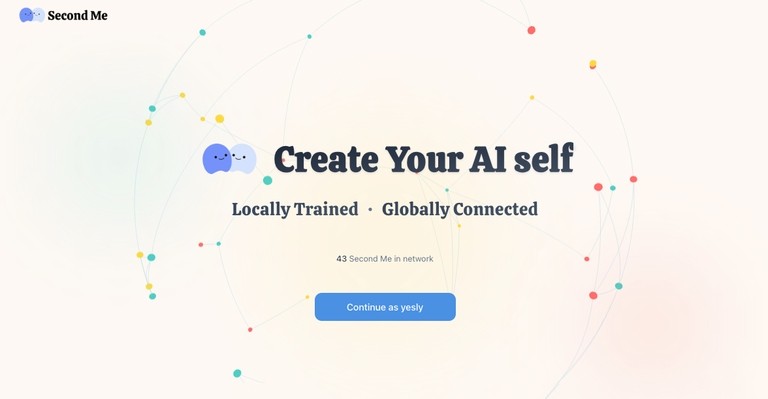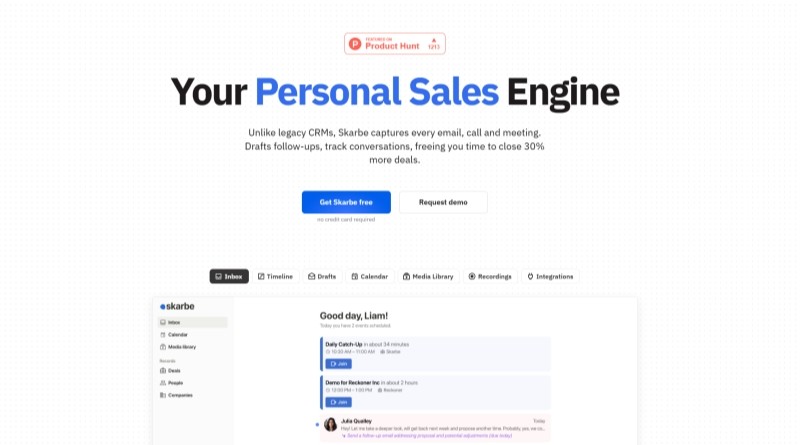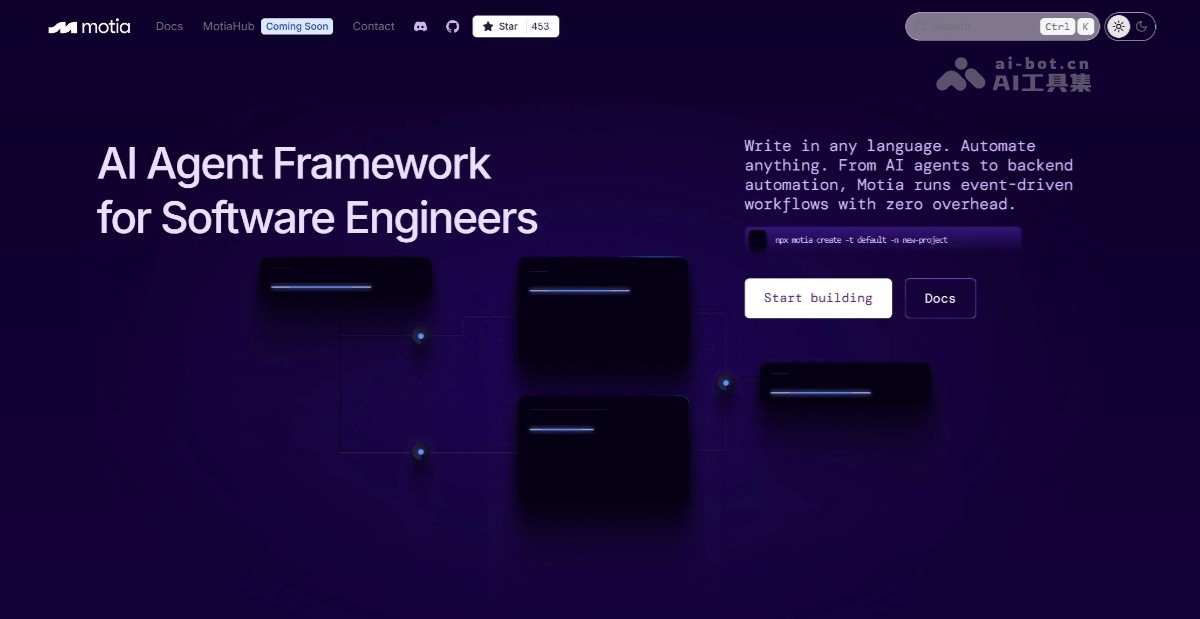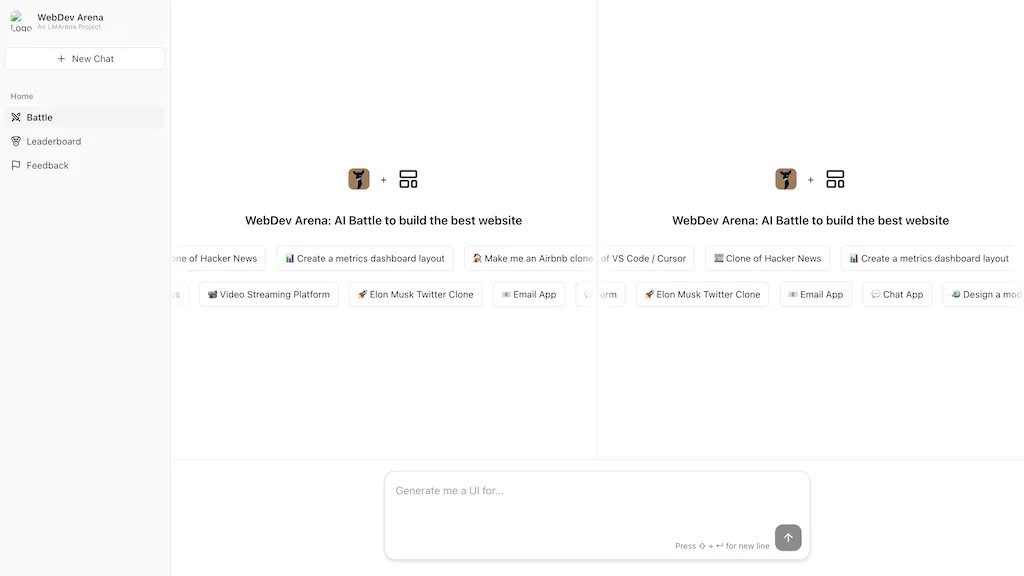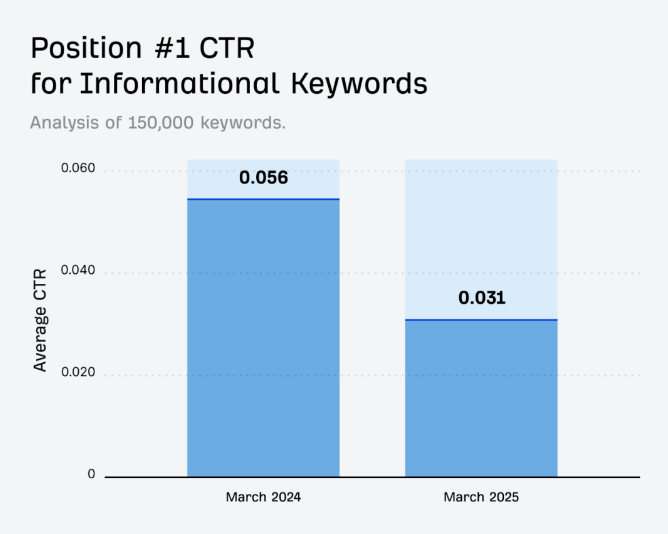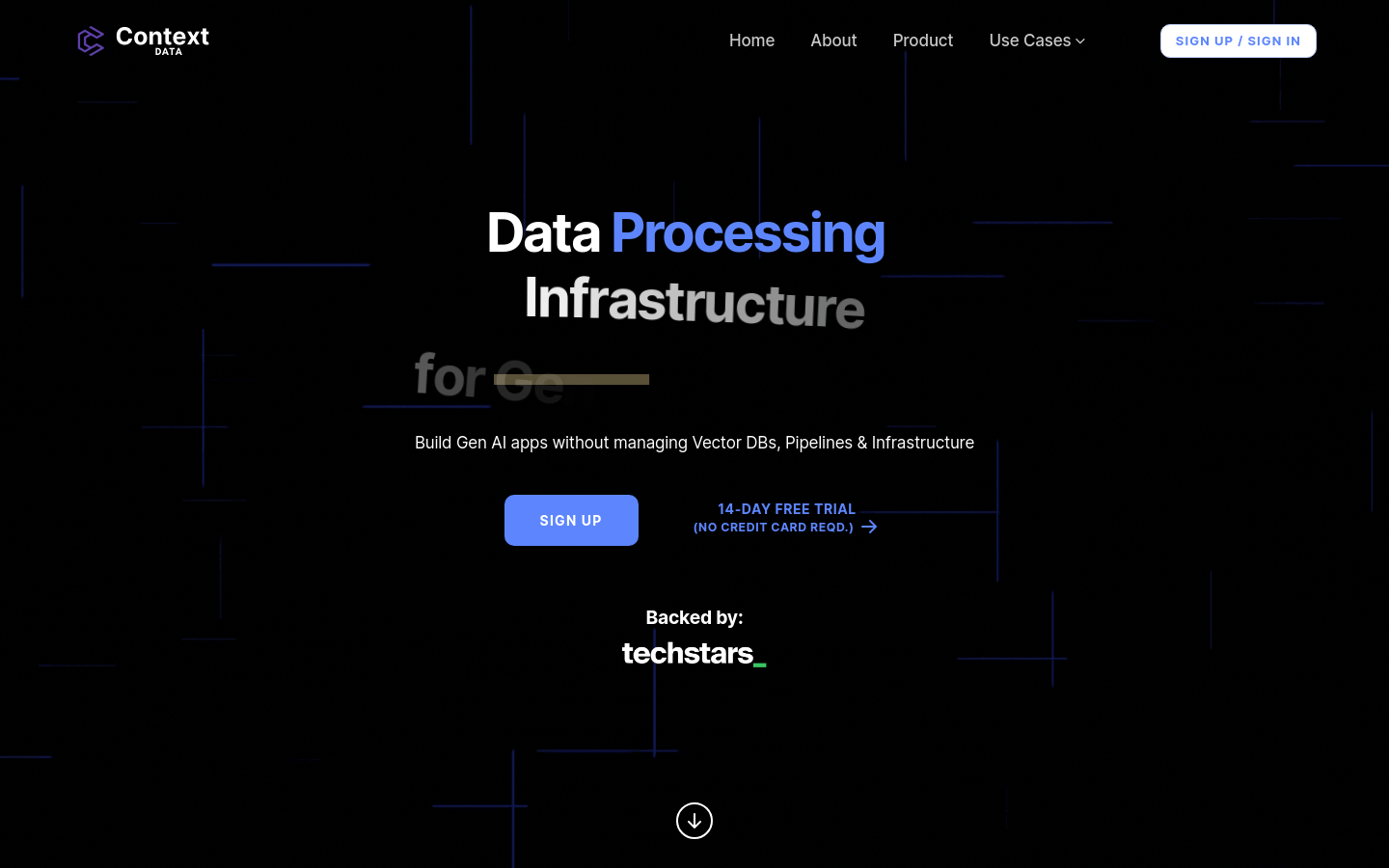
Context Data is a data processing and transformation platform designed for generative AI applications. It helps AI teams build data infrastructure so they can focus on developing AI logic. Without setting up infrastructure, you can transform data across multiple data sources, connect multiple models, load data into primary vector databases, query private vector data, configure scheduled pipelines, and build data and ETL pipelines.
Target audience: AI teams who need to build and maintain data infrastructure. By simplifying the data processing process, the team can focus on the development of AI logic and improve work efficiency while ensuring data security and privacy.
Example of usage scenario:
The AI team uses Context Data to build data infrastructure and focus on developing AI models.
Enterprises use Context Data to migrate data from Salesforce to MySQL, transform and query it.
Developers use Context Data 's API and SDK to create customized AI applications.
Product features:
There is no need to set up infrastructure to build AI applications.
Transform data across multiple data sources for complete data integration.
Connect multiple models with one click to simplify the data embedding process.
Supports loading data into all major vector databases.
Provide query function for private vector data.
Timing pipeline configuration to ensure data timeliness.
Get instant responses with Query Studio.
Provides API and Python SDK for building advanced applications and configurations.
Usage tutorial:
1. Visit the Context Data website and register an account.
2. Connect to multiple external data sources, including embedded models and vector databases.
3. Convert data through the platform and integrate data from different sources.
4. Convert data into vector embeddings using popular models.
5. Load the final data into a supported vector database.
6. Configure the pipeline to run regularly to keep the data updated.
7. Use Query Studio to query data and get instant responses.
8. Leverage APIs and SDKs to build more advanced applications and configurations.
